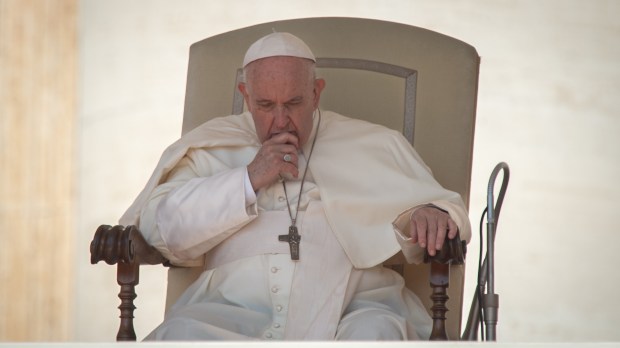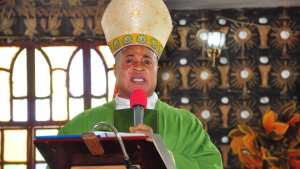Friday, August 19
1. Should the Pope speak out on Nicaragua?
2. “Many Christians unconsciously censor themselves”
3. What should we expect from the meeting of all the cardinals?
Should the Pope speak out on Nicaragua?
Twenty-six former heads of state and government from Spain and Latin America, all members of the Democratic Initiative of Spain and the Americas (IDEA), have signed a declaration in which they express their “deep concern” about what is happening in Nicaragua “under the primitive dictatorship of the Ortega-Murillo family.” According to them, the regime intends “to destroy the cultural and spiritual roots of the Nicaraguan people in order to (…) make them easy prey to dominate by destroying their dignity and fracturing their cultural roots.” They ask the head of the Catholic Church “to take a firm stand in defense of the Nicaraguan people and their religious freedom.” But Juan Vicente Boo, a former Vatican correspondent for Spanish daily ABC, believes that a strong condemnation by the Pope could result in an even stronger repression against the country’s Catholics. For the journalist, one of the tasks of Vatican diplomacy is mediation, which “cannot begin with a condemnation, because one of the parties will not listen to you.” In this sense, the Pope “must be very careful with his words in order to obtain the best result, trying to have the fewest negative effects possible.”
Alfa y Omega, Spanish
“Many Christians unconsciously censor themselves,” says the International Institute for Religious Freedom
“Many Christians unconsciously censor themselves,” says Dennis P. Petri, director of the International Institute for Religious Freedom. While according to his organization’s latest studies, religious discrimination around the world is on the rise—affecting all religions and all geographic areas—he cites Nigeria, Mexico, Cuba and Nicaragua in particular. But, he notes, while the West “has the impression that religious persecution is the lot of distant regions such as the Middle East, Africa, India or China,” it is itself confronted with “other forms of limitation of religious freedom.” This is “self-censorship,” also called the “chilling effect.” This phenomenon, the expert explains, “occurs when an individual who enjoys the freedom to express himself freely decides to self-censor in order to avoid the negative consequences of expressing his opinion in a given case.” Thus, many Western Christians feel the need to be “cautious,” to “self-secularize” or to use “democratic language” to express their ideas. This behavior is often not recognized as self-censorship by the individuals themselves. Nevertheless, Dennis P. Petri has not lost hope: “The religious, spiritual, or transcendental dimension of human beings is essential to the human condition, which is why it has always been and will probably always be present in the new generations.”
Omnes, Spanish
What can we expect from the meeting of all the Cardinals?
Several weeks after the promulgation of the new Constitution reforming the Roman Curia, little has effectively changed. As the article in Die Tagespost shows, the Pope has, for example, taken over the head of the dicastery for evangelization, but it is not yet known who his two pro-prefects are. Likewise, many of the heads of dicasteries have not been announced. “Everything has changed, but things have remained as they were,” summarizes the reporter, as cardinals from around the world are expected to study his reform of the Curia with Pope Francis on Monday. A first since 2014, we note, pointing out that the Argentine pontiff, who advocates synodality, has relied little on his cardinals to govern the Church. “It’s like the reform of the Curia: everyone talks about change, but so far everything has remained the same,” judges the journalist.
Die Tagespost, German.


